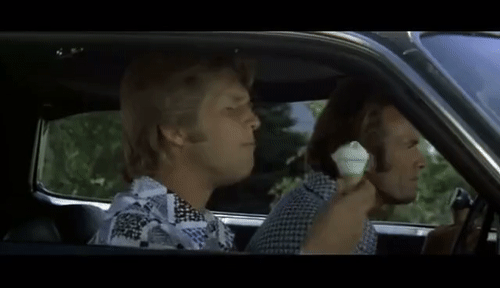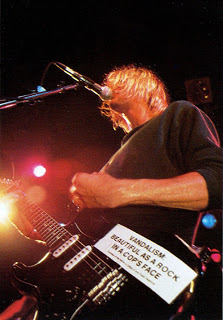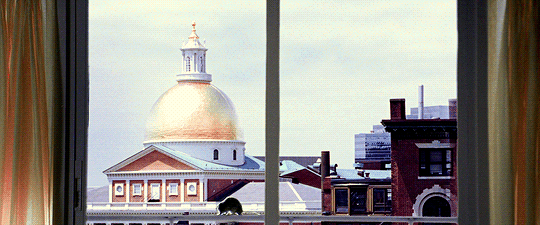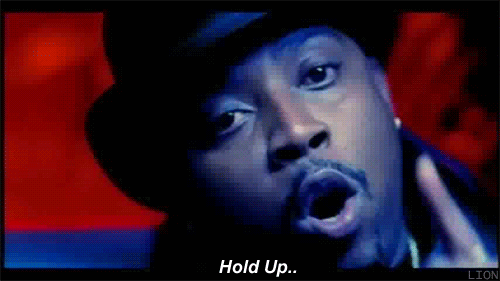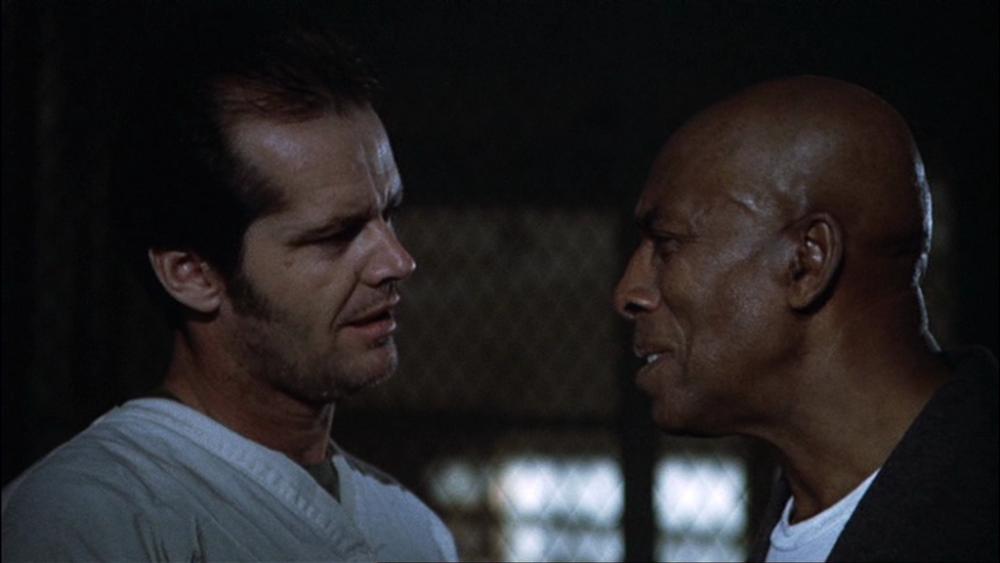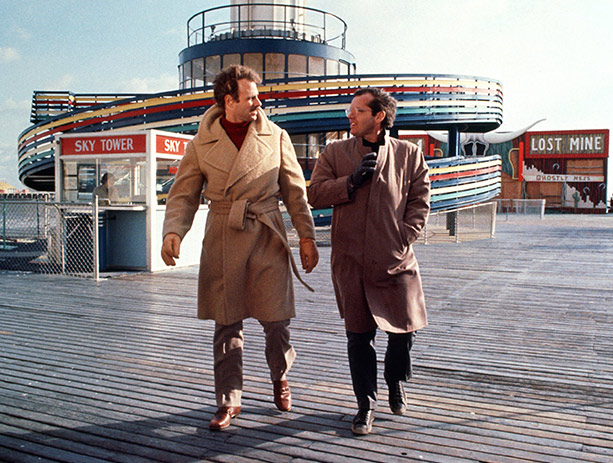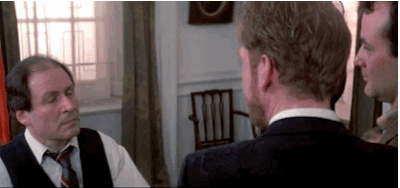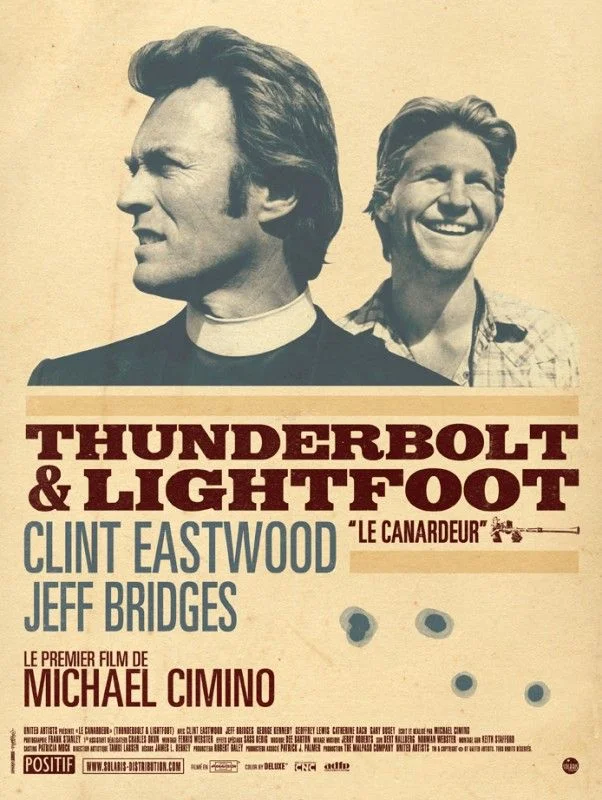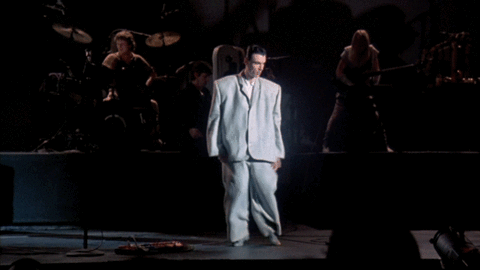Soaking in the Seventies: Five Timeless 70's Flicks Time Forgot
All forms of art have their Golden Age(s).
Painting had Dutch Masters (no cigarillo).
The Harlem Renaissance.
The Jazz Age.
The Romantic Era, with William Blake “and them boys”©Stephen A.Smith
French New Wave.
“The Golden Age of Television”.
The Birth of Rock & Roll.
Dylan, Motown, the British Invasion’s transition into the Album Era.
Shoot, Miles Davis alone was at the forefront of at least three of them.
Me?
I was born after all that.
Growing up most hope, or want to believe, a Golden Age is occurring during their time.
Yours Truly?
I’ve been blessed enough to witness a few already during mine:
The Bird/Magic/Doc/MJ/Bad Boys Eighties that sprung the NBA from tape delay into superstar-fueled ballet.
The first couple Golden Ages of Hip-Hop.
The Advent of the World Wide Web.
The Golden Age of TV-Being-Better-Than-Movies (2000 to…still counting).
The LA Funk/Soul/Jazz/Rap Renaissance of the 2010’s (a topic discussed on these pages before, and hopefully in book form later).
But on some level it doesn’t matter if the times you live are creatively fruitful, as long as it mattered during your formative years.
The sweet spot is typically around 13 to 17, with margin for fluctuation on either end.
Perhaps that’s what the Grunge Era represents for me as a teen.
In retrospect, not sure its musical virtues extend far beyond it being cool to say “I remember living in the world during the same time as Kurt Cobain”.
Editor’s Note: for further context, feel free to judge this 2019 playlist with some of my 90’s era rock favorites, once you finish reading this page.
But that might mean about as much, or even less, as saying the same about Pac, BIG, or at the Spectrum in pubescence seeing PE and NWA share a stage.
That’s why I smile, rather than shake my head, seeing YouTube commentary like “This Was When Music Was REAL!!!” underneath a Ja-Rule and Ashanti video.
Because I get where that sentiment is coming from, even while to most of us, that particular claim veers near Fyre Fest levels of ridiculousness.
A Golden Age is not always there when you call, but you’re always on time.
Despite being a reaction to Hollywood’s “Golden Age”, American Cinema’s peak is still the “New Hollywood” 1970’s.
For some details and dish on the subject, Peter Biskind’s Easy Riders, Raging Bulls: How the Sex-Drugs-and-Rock 'N Roll Generation Saved Hollywood isn’t a bad place to start.
Never mind that Easy Rider dropped in Summer of ‘69, or that Raging Bull rang in Christmastime 1980.
Creative explosions rarely coincide with perfect numerical symmetry.
Both were bellwether movie-marquees for the New Hollywood, marking the spiritual beginning, and end, of an era.
Speaking of Easy Rider and eras ending, RIP Peter Fonda, who rode out at age 79 this week.
A special shout-out to my Alma Mater English Department’s Linguistics and Film Analysis professor, Dr. Sapora.
After buying, then devouring, the aforementioned hardcover book in the McDaniel Hall dorm inside of 48 hours, I loaned it to the Doc, and never saw it again.
But he taught me more than I learned in those pages, so if by chance he’s reading this, hold onto that, my friend.
The five seventies films we’re gonna talk about here were all released over a 26-month period between Fall ‘72 and February ‘74.
That same stretch of time almost perfectly parallels the beginning of the Watergate break-in investigation, and eventual resignation of Richard Nixon.
Coincidence? I think not.
Life inspires art, and vice versa.
These movies are stitched together from the tattered fabric of their time: fallout from the assassinations of RFK and MLK in ’68, the slow crawl out of an unwinnable war, the violent social upheaval of a country unwilling or unable to come to terms with its savage racial history used to build out the American Dream, plus recorded confirmation that the Leader of the Free World might be more insecure and small-minded than the ringleader of a middle-school lunch table.
I could mention how a lot of this should sound familiar, but that level of symbolism might appear as over-the-top as Martin Scorsese’s rat at the end of The Departed, a film which garnered the director his first Oscar, 30+ years into a Hall of Fame career that blasted off during the decade discussed here.
All of these films came out before I was born.
Each of them, received reasonably well at the time of their release, share similar threads beyond proximity of release date.
I watched all of these films for the first time ever over the past seven days.
Deep in summer’s dog days when you’re sweating as soon as you walk outside, plodding thru the corporate drudgery with an uninspiring list of entertainment lineup filled with five-hour baseball games, summer programming re-runs, poisonous cable-news, and vapid social media tail-wagging-the-dog debates, what better way to spend a few air-condition hours in a fulfilling way than bunker down with some old (but new to you) stuff?
Millennials, or to a lesser degree Gen-Z-ers, proudly proclaiming their ignorance or lack of interest in all things that happened before their arrival, take note.
I’m far from perfect, but even as a hot teenage mess, I’d never confess to my birth certificate being a valid excuse for not knowing Jimi Hendrix.
And it’s a lot easier when the chief research tool is in your pocket, rather than needing to cobble together information from disparate sources, such as the cool older kids in the neighborhood, record-store clerks, FM radio, monthly music magazines, MTV, and library micro-fiche.
Those who don’t know history, are doomed to repeat it.
Don’t get me wrong, I detest the 2010’s trend of Baby-Boomer-blame-shifting any societal ill onto Millennial Boogeymen.
As a member of the oddly muted generation between, the last to experience life before and after the Digital Age, greatly out-numbered on both sides and occupying a less defined cultural place, take these words of well-worn wisdom with love, like you would from a cool older cousin turned slightly washed sage.
For best results, don’t be afraid to do a little digging in order to locate your own Golden Age.
XOXO,
Bambino
Now On With The Show…
The “Soaking In The Seventies” Episode of The Five Spot Categories:
Legendary Lead Performing Antihero Deeds: The seventies was the decade American film studios caught up to the revolutions that had already taken place in other realms of American art (literature and music, especially) or in the film scenes of other countries (50’s-60’s French New Wave, specifically).
The films were a reflection of the times in which they were created, while the anti-hero was more often the protagonist, or at least the character around whom the film revolves.
Bartles & Jaymes “Thank You For Your Support” Award: Recognition for a less heralded actor, forgotten by time, putting in powerful work.
Honorary Nate Dogg “Hold Up, Waaaaiiit” Flashpoint of Recognition: that moment when you’re home watching an old movie, then suddenly see an actor in their young, early career trajectory, before their star ascended.
70’s Auteur Theory: the author of this page, opines on the author of this movie, and tries to determine where it fits into his legacy.
Editor’s Note: And yes, sorry ladies, I said his. Unfortunately, women didn’t get to write, direct, or even produce movies back then, much like black people didn’t get to star in them: despite all the seventies youth-culture-shifting, it’s still part of an ethically shitty major-studio system.
Doomed Mission: The chief objective of the main character(s), usually an unrealistic plan borne out of desperation.
Potable Quotables: stand-out lines of dialogue.
Supremely Americana-Soaked Scenery: Each film features authentic cinematic snatches of early 1970’s American landscapes, vehicles, styles, logos, and landmarks, which would now be described as Americana, that could never be replicated today by any amount of CGI, or set design wizardry.
Grand Allusions to the Boulevard of Broken American Dreams: How social conditions of the time period seep into the tone.
Warnings We Didn’t Heed, Still Seen in 2019: What does this movie try to tell us that we should have paid more attention to?
Symbolic Rat Claptrap: The visual metaphor in the movie closest to Departed rat levels of excessive.
Ingredients: things that influenced these proceedings.
Aftertaste: things that went on to become informed by it.
Soundtrack Attack: noteworthy song, score, or music moments.
Random Fun Facts: Trivial tidbits of information about the film’s making.
Seven Word Summation: This one should be somewhat self explanatory.
The King of Marvin Gardens
Date of Release: October 12th, 1972
Legendary Leads Performing Antihero Deeds: Jack Nicholson, in a decade he dominated akin to Stevie Wonder or David Bowie in music. After a scene-stealing arrival in Easy Rider, Nicholson starts the 1970’s nominated for five Oscars, winning for the fifth, One Flew Over the Cuckoo’s Nest in 1976. The only non-Oscar-nominated link in that chain? The King of Marvin Gardens. But he’s still great here, as gloomy Philadelphia writer-turned talk-radio host David Staebler.
Bruce Dern, as David’s charismatic con-man older brother Jason, and Ellen Burstyn, as Jason’s aging prostitute companion, get to set off fireworks in flashier parts. But Nicholson remains the center that holds things together.
Honorary Nate Dogg “Hold Up, Waaaaiiiit” Moment: Is that the cabbie hired by Mr. Big who kept calling Bond, James Bond, “Jim” in Live and Let Die?
Arnold Williams had a big year being featured in these two flicks. Not sure what happened after that, but my best guess would be a scarcity of roles outside of the blaxploitation circuit in the seventies if you weren’t a name-brand on the level of Richard Pryor, Sidney Poitier, or Billie Dee Williams.
Bartles & James “Thank You For Your Support” Award: Actor/Musician Scatman Crothers appears here as an Atlantic City mob-boss. When he and Nicholson share their only scene late in King, you see sparks of the undeniable chemistry they’d mine again later in The Fortune, Cuckoo’s Nest, and The Shining.
Julia Anne Robinson also shows some promise, in her first role at age 21, trying to hold her own alongside three titans, as Sally’s step-daughter/protégé Jessica. Tragically, it would be her last onscreen performance. She died in an apartment fire back in her Eugene, Oregon hometown just two years after King’s release.
70’s Auteur Theory: Bob Rafelson, New Hollywood visionary, or right place/right time guy who latched onto Jack Nicholson early, and went along for the ride?
Doomed Mission: Jack’s David joins his brother in Atlantic City, to follow his pipe dream plans of opening a casino in Hawaii that will yield them “our fortune”.
Potable Quotables:
Jason Staebler: You notice how it's Monopoly out there? Remember Boardwalk, Park Place, Marvin Gardens?
David Staebler: Go to jail?
Jason Staebler: Well, that's me. Don't pass go, don't collect $200.
Despite a script overstuffed with dialogue, the money quote comes from a slogan seen on a train station poster five minutes in:
This was an actual city-approved slogan, occupying prime billboard real-estate on the Schuylkill Expressway during ‘71 & ‘72, in the birth city of the United States, just a few years prior to its decidedly loftier messaging, centered around the Bicentennial Celebration. As a man born in Philadelphia four decades ago but only just finding that out this week due to this movie, that feels equal parts hilariously amazing, and wholly appropriate.
Sweeping Americana-Soaked Scenery: Shortly after the opening credits we leave Philly, to spend the rest of the movie in early-70’s Atlantic City.
The original, gargantuan turn-of-the-twentieth-century resort hotels (like the Traymore Hotel at Park Place & Boardwalk) that HBO’s Boardwalk Empire attempted to recreate forty years later to depict AC in the 20’s, are still actually around at this point.
Captain Starn’s Restaurant and Boating Center plays host to a crucial dinner.
The original Steel Pier is in here.
Rolling Chairs aka Rickshaws.
Copious amounts of unintentionally kitschy shops along the boardwalk.
The World’s Largest Pipe Organ, tucked inside Atlantic City Convention Hall.
Grand Allusions to the Boulevard of Broken American Dreams: As mentioned above, after leaving Philly shortly after the opening credits, we spend the rest of the movie in early-70’s Atlantic City.
Cinematography legend Laszlo Kovacs (Easy Rider, Five Easy Pieces, Shampoo, The Last Waltz, Ghostbusters, Say Anything…) wrings out a surreal, dream-like quality to the imagery, while utilizing its aging backdrop. But Kovacs, Rafelson & Company don’t have to work too hard to spotlight the decay on display.
All of these landmarks were demolished before decade’s end.
The Traymore Hotel, the film’s principle location, was reduced to rubble before The King of Marvin Gardens reached opening weekend.
“Everything dies, baby that’s a fact…”(c)B.Springsteen
Warnings We Didn’t Heed, Still Seen in 2019: Atlantic City looks different today, but some faded remnants, from the ghosts of grifters past, remain.
Ingredients: Parker Brothers’ Monopoly, Neo-Realism, French New Wave, Easy Rider, Five Easy Pieces.
Aftertaste: The Exorcist, One Flew Over The Cuckoo’s Nest, The Shining
Soundtrack Attack: Jack Nicholson crooning “Here She Is, Miss America” with Burstyn accompanying on organ.
Random Fun Facts: The movie’s original title was “The Philosopher King”.
Please. Pretentiousness is already prevalent enough here to risk being problematic, without invoking Plato and Socrates.
The role of David was originally offered to Al Pacino. He declined, in order to play Michael Corleone in The Godfather.
Good Call, Al!
Seven Word Summation: It’s not quite Boardwalk or Park Place.
The Sugarland Express
Date of Release: March 31, 1974
Legendary Lead(s) : Goldie Hawn, in her first drama, based on a real-life incident involving a married couple running from the law in turn-of-the-70’s Texas.
As Lou Jean Poplin, Hawn plays an agent of chaos. While looking at times almost unrecognizable, it’s interesting to watch her try on a Texas accent, plus turn her comedic charm and goofiness on its head to become the woman that leads everyone down a dangerous path with her impetuousness.
Bartles & Jaymes “Thank You For Your Support” Award: As veteran Department of Public Safety Captain Tanner, Ben Johnson brings an Old Hollywood Western veteran combination of charm and gravitas, while the character he creates gets to be the proverbial “adult in the room” in the face of all the young recklessness surrounding him during this ongoing crisis. Johnson actually had a pretty nice run in the early seventies overall: he’d won an Oscar as Sam the Lion in The Last Picture Show, and a good-sized role the year before Sugarland Express in The Getaway. After this movie, there isn’t a single listing, from 1974 thru his death in 1996, on his IMDb that I’ve even heard of, let alone seen, besides Mr. Mason in Red Dawn.
Honorary Nate Dogg “Hold Up, Waaaaiiiit” Moment: is that the reporter from Die Hard, aka Walter Peck from Ghostbusters, playing Goldie’s husband?
William Atherton is probably far better known for either of these small parts, over ten years later, then he is for The Sugarland Express.
70’s Auteur Theory: This is the film debut from a then-little-known 26-year-old filmmaker named Steven Spielberg.
It didn’t do big box-office business, while most of its meager earnings came off Goldie Hawn’s name.
The next four Spielberg made after this-Jaws, Close Encounters of the Third Kind, Raiders of the Lost Ark, and E.T., consecutively-fared slightly better.
Doomed Mission: Lou Jean and Clovis Poplin embark on a road trip to kidnap their baby Langston from foster care, where he’s been since both went to jail.
Potable Quotables: “We’re in real trouble.”-Clovis Poplin
“He’s peeing on me!”-Lou Jean Poplin reacting to the new piglet she’d been bequeathed by one of the townspeople.
That’s a fairly uninspiring list, but what can we say? What’s your favorite line from Close Encounters, or E.T. anyway?
Despite his obvious greatness, dialogue isn’t typically Spielberg’s strong suit.
Sweeping Americana-Soaked Scenery: Roads that seem to go on forever, state trooper cars, gas stations, local crowds, and commercial lots that look like today’s equivalent of highway exit strip malls, as far as the eye can see.
Grand Allusions to the Boulevard of Broken American Dreams: The movie films in a real-life early-release center outside of Sugar Land, Texas. As the chase continues, the co-conspirators and their kidnapped cop realize they have more in common than they thought, with equally little control of their own destiny.
Warnings We Didn’t Heed, Still Seen in 2019: This chase feels like a precursor to the OJ White Bronco slow-roll along The 10 West in Los Angeles, which along with the subsequent trial was arguably the birth of '“reality television”.
This depiction of two bumbling “kids” risking it all on a widely broadcast stage, becoming heroes and enemies to their fellow citizens who never met them, is the 1969 Texas equivalent of a viral video.
Meanwhile, Lou Jean Poplin’s giving one of her fans a beauty-supply order to fulfill when they stop at a gas station, then posing for Polaroids, while complaining about the photo of herself that the local newspaper chose to run on the front page, all feels prophetically Kardashian-esque.
Symbolic Rat Claptrap: While on the run, Lou Jean and Clovis watch a Wile E. Coyote and the Road Runner cartoon movie playing at a nearby drive-in without being able to hear the sound. At first, Clovis has a good time making his wife laugh by providing the cartoon sounds himself. Then, in a rare moment of clarity for a lunkhead led into real trouble by his impulsive wife, it finally seems to register to Clovis that the anvil might soon be falling on his head.
Influential Ingredients: The real-life ripped-from-the-headlines story, Bonnie and Clyde, The Getaway.
Biting Aftertaste: Jaws, Close Encounters of the Third Kind, Natural Born Killers.
Soundtrack Attack: Legendary composer John Williams makes the first of sixteen film score collaborations with Spielberg.
Random Fun Facts: Think 40 squad cars following them felt like overkill? It was 150 in real life, but Spielberg didn’t have that kind of budget clout yet.
And in part for financial reasons, but also for authenticity, all the extras and smaller role actors were hired by on-location casting calls locally.
Seven Word Summation: Portrait of the Auteur as Young Man.
Thunderbolt and Lightfoot
Date of Release: May 23, 1974
Legendary Lead Performing Antihero Deeds: Clint Eastwood as John “Thunderbolt” Doherty, a marine-bank-robber-turned-preacher-back-to-bank-robber.
Jeff Bridges as Lightfoot, the young, charismatic, skirt-chasing, car-thieving, free-spirited drifter type who wants to partner up with a reluctant Eastwood.
Surprise Guest of Honor: Is that Young Gary Busey in a small role as a member of a Montana landscaping crew?!? Indeed, it is. Daisy Duke is in this too.
Who knew this guy would be shouting “Utah, Gimme Two!” from out a parked car in a more well-known bank-robbing heist film fifteen years later?
70’s Auteur Theory: After successfully penning the screenplay to Eastwood’s second Dirty Harry installment, Magnum Force, Michael Cimino writes plus makes his directorial debut on Thunderbolt and Lightfoot. It was a success, making money while being made for a modest budget. Cimino followed this up with the classic Vietnam war epic, The Deer Hunter in ‘78. But his streak of critical kudos and box-office bankability both ended immediately after the 70’s did.
His 1980 three-hour-and-forty-minute western, Heaven’s Gate, is one of the biggest bombs in Hollywood history, nearly bankrupting United Artists studio.
Pardon my heresy, but The Deer Hunter was too long, as is the director’s cut of Francis Ford Copolla’s Apocalypse Now Redux re-release in 2001.
The number of movies that need to be three hours long can probably be counted on one hand, and two on that list are Godfather flicks.
Yet by the late seventies, a studio was willing to give Cimino 120 million (adjusted for inflation) to make a four-hour western with Kris Kristofferson?
Good things, like good times, do end.
Russian Roulette is an ill-advised bet.
Doomed Mission: Thunderbolt and Lightfoot hit the road together, then get a crew together to plot robbing a Montana bank.
Potable Quotables: “I don't wish to be forward but we'd like to exchange cars with you. So the faster you get out, the better it'll be for your ass.”-John “Thunderbolt” Doherty.
Pretty much every line George Kennedy spews forth, as caustically toxic Red Leary is hilariously vitriolic, including “drop your cocks and reach for your socks!” when by hiding in their backseat with the heater, he gets the jump on the dynamic duo in this page’s header .GIF.
And then, of course, there’s this:
Sweepingly Americana-Soaked Scenery: Breathtaking depictions of a part of America most of us rarely see. Granted, this was the early seventies. Do Idaho and Montana still look like this, or did they move all the mountains, streams, trees, valleys, and lush greenery to put up a parking lot more recently?
During my Summer 20SickDream cross-country drive from LA to Philly, Utah was the most beautiful state I saw. It was also deeply strange, the only place I got pulled over and ticketed, plus the only place where I was propositioned once let alone multiple times about joining a new religion. But that’s beside the point.
On a purely aesthetic level, it was more gorgeous than anywhere else I passed through, including Colorado next door, and the California I’d left.
Watching this movie, it seems like the Big Sky country up in Idaho and Montana would have topped it, if I had headed north instead of east.
Grand Allusions to the Boulevard of Broken American Dreams: The movie begins with bullets inside a roadside church, and ends at a one-room schoolhouse.
There’s also this pearl of wisdom from a gas station attendant while speaking to Lightfoot, not realizing he’s there to steal a car:
”In this business, you're always one step away from bankruptcy. Funny money, credit, speculation... Somewhere in this country's a little ol' lady with $79.25. The five cents is a buffalo nickel... If she cashes in her investment, whole thing'll collapse. General Motors, the Pentagon, the two-party system and the whole shebang... We're all running downhill. Gotta' keep running faster or we'll fall down.”
Symbolic Rat Claptrap: Nothing nearly as egregious as the movie above this one, but the planned community identical houses building up inside some of the most beautiful areas of the country functions as both a filler answer for this category and Warnings We Didn’t Heed, Still Seen in 2019.
Ingredients: Easy Rider, Bonnie and Clyde, Magnum Force
Aftertaste: Thief, The Deer Hunter
Soundtrack Attack: Paul Williams’ “Where Do I Go From Here?” does this road movie justice.
Random Fun Facts: Eastwood was the originally planned director for the film, but having developed a trust in Cimino due to their prior collaborations, bequeaths the heavy-lifting to him, which set in motion the man behind the wheel of New Hollywood’s crash-landing at Heaven’s Gate.
Seven Word Summation: Legendary duo goes on a wild ride.
Alice Doesn’t Live Here Anymore
Date of Release: December 9, 1974
Legendary Lead Performing Antihero Deeds: King of Marvin Gardens co-star Ellen Burstyn, fresh off wrapping The Exorcist. To call her an ‘antihero’ here would be a bit misleading, but in the midst of New Old Hollywood misogyny, a widowed housewife doing what she can to get by, taking her act on the road with a child in tow, plus keeping the company of a night owl (Harvey Keitel) with a secret, probably qualifies.
Bartles and Jaymes “Thank You For Your Support” Award: Kris Kristofferson’s seemingly effortless charm is perfect here, you root for him to win over Alice. Diane Ladd is also perfect here as Flo, despite viewers nowadays probably picturing the Flo in Mel’s Diner as Polly Holiday. Alice Doesn’t Live Here Anymore shares the distinction with MASH of being superior movies made by legendary auteurs, that became more well known for their TV sitcom adaptations.
Nate Dogg “Hold Up, Waaaaiiiit” Moment of Recognition: 11-year-old Jodie Foster, in her first film role, pre-Taxi Driver, as the bad-influence kid with minimal parental supervision, already appearing fully formed as the Jodie Foster we’d come to know.
70’s Auteur Theory: This was Martin Scorsese’s first major hit movie. It bears little resemblance to the work he was starting to become known for on Mean Streets before, or almost any of the classics he made afterwards.
Is it the best film on his resume? No. Is it his most underrated, and most singular? There’s a strong argument for yes, on both counts.
Doomed Mission: Alice leaves New Mexico in her rear-view mirror shortly after her husband is killed in a work accident, aiming to get back to Monterey, California where she was raised, to resurrect a singing career that never really was, while also needing to support herself and her son.
Potable Quotables:
Tommy: Mom, are we in Arizona yet?
Alice: If you ask me that one more time, I'm gonna beat you to death. Just sit back there and relax and enjoy life, huh?
Tommy: Life is short.
Alice: So are you.
Flo: Mel, what you doing back there, pulling on your pudding? Or are you giving it a whack with a hammer? I heard the only way you can get it up is to slam it in a door.
Mel: I don't want to get too close to you, honey. It will get you all bothered up early in the morning.
Flo: I could lay under you, eat fried chicken... and do a crossword puzzle at the same time. That's how much you bother me.Alice: Don't look back. You'll turn into a pillar of shit.
Tommy: The whole state is shit.
Alice: Don't talk dirty, Tommy. How many times do I have to tell you?
Sweeping Americana-Soaked Scenery: We travel thru the Southwest with a Rand McNally atlas, riding shotgun like her son, with Alice. Scorsese’s depiction of the scenery is decidedly less romantic than the poetic beauty of Big Sky country portrayed by Cimino in Thunderbolt and Lightfoot, with the notable exception of a flashback sequence at Alice’s childhood home in Monterey that looks like a movie from another time.
Grand Allusions to the Boulevard of Broken American Dreams:
Symbolic Rat Claptrap: The opening scene with Alice as a little girl paints her as a sassier Dorothy from The Wizard of Oz , while crooning like Judy Garland.
Warnings We Didn’t Heed, Still Seen in 2019: Ya got me.
Ingredients: The Wizard of Oz, Meet Me In Saint Louis, Mean Streets.
Aftertaste: The TV sitcom Alice, Mermaids, The Age of Innocence.
Soundtrack Attack: You can faintly here Dolly Parton’s original version of “I Will Always Love You” playing at the bar.
T.Rex makes the cut with “Jeepster” and Elton John with “Daniel”.
Between those three songs, that might make it Scorsese’s most ‘new music’, in terms of songs released contemporaneously to its making.
Of course, he also has Kris Kristofferson singing a 1949 Hank Williams classic, “I’m So Lonesome, I Could Cry”, and features Ellen Burstyn performing standards like Rodgers and Hart’s “Where or When” as Alice, which while they’re “not Peggy Lee”, are still affecting.
Random Fun Facts: Don’t blink or you’ll miss seven-year-old Lauren Dern, daughter of Diane Ladd, eating an ice-cream cone in the diner.
Seven Word Summation: When the going gets tough, mothers adjust.
Shampoo
Date of Release: February 11, 1975
Legendary Lead(s): Warren Beatty, as a Lothario a lot like…Warren Beatty. Or at the very least, his public playboy persona before Annette Bening.
Further inspiration for the film also came from Jay Sebring, otherwise known as the late-sixties hairdresser-to-the-stars, who was murdered alongside Sharon Tate by members of the Manson Family, who was known to bed his female clients and sell drugs to his male ones. But rather than focus on the murders, this film sets its backdrop against Election Day 1968, an event that by 1975 probably feels foreboding, but in terms of the characters’ mind-state, the election is just something on in the background, an excuse to get together for a cocktail dinner in Beverly Hills while the returns come in, and the drama in the room far eclipses any election concerns for all the main players.
Bartles and Jaymes “Thank You For Your Support” Award: This is the ideal version of Goldie Hawn for my money. This or Foul Play. She’s absolutely adorable as Jill, George’s slightly neurotic, too-trusting, somewhat naive, flighty aspiring actress, who is also the film’s only character resembling a good, non-cynical person. Whatever reasoning George is supposed to have for not wanting to be with her, is incomprehensible to me, but maybe that’s the point.
Many of the supporting performances are great, including Julie Christie and Lee Grant, but Jack Warden steals the show as Lester, a cut-throat businessman juggling a wife and a mistress, a performance for which he was nominated, but did not win, a Best Supporting Actor Oscar.
Surprise Guest of Honor: a pre-Princess Leia, 18-year-old Carrie Fisher, in her film debut as a privileged, disaffected, promiscuous teen with a mother grudge.
70’s Auteur Theory: If we’re talking about the greatest auteurs of the seventies, one rarely mentioned with the Coppola, Scorsese, Altman crowd of usual critical darling suspects is Hal Ashby. But the sixties editing legend turned seventies director has a legit case for having had the best decade out of them all. Ashby made seven films in nine years during the seventies: The Landlord (his comedy-drama film debut about gentrification in Brooklyn), Harold and Maude, The Last Detail, Shampoo, Bound For Glory, Being There, and Coming Home. All of which, arguably, are classics. None of them remotely like the other.
Doomed Mission: George hopes to open his own hair salon, while at the same time bedding his benefactor’s wife, mistress, and even daughter, all in the same day, while also somehow maintaining his supposed monogamous relationship with his aspiring actress live-in girlfriend.
Potable Quotables: “Let’s face it. I fucked them all.”-George fessing up to Jill
Sweepingly Americana Soaked Setting: Los Angeles is, by professional necessity, the physical backdrop of countless films. Not many have fully embraced the city’s winding hills and bungalow beauty as well as this one.
Grand Allusions to the Boulevard of Broken American Dreams: The Nixon Era begins.
Symbolic Rat Claptrap: The title Shampoo, with its lather/rinse/repeat motif, inside a beauty shop filled with George’s clients and conquests is a winking bit of sexual innuendo.
Warnings We Didn’t Heed, Still Seen in 2019:
Do we even need to get into it?
Ingredients: Manson, Nixon, The Women’s Lib Movement, Los Angeles, Bonnie and Clyde, Chinatown.
Aftertaste: Black Shampoo (the blaxploitation version of the film that came out the next year), Loverboy with Patrick “Extra Anchovies” Dempsey, and the song “Black Shampoo” on Wu-Tang Forever, a U-God solo cut that’s arguably the worst song on the entire double-album, unless you count Poppa Wu’s intro.
Soundtrack Attack: Paul Simon does the score, but it doesn’t really stick to the ribs. The music that truly pops is the late-sixties rock played at the hippie party in the film’s late stages, Jimi Hendrix’s “Manic Depression” becomes a perfect crescendo for George’s exposure.
Random Fun Facts: Beatty and on-and-off-again girlfriend in real life, Julie Christie, broke up for good during this movie, supposedly due to Beatty’s need to get ‘into character’ with other co-stars, even making a move on the 18-year-old Carrie Fisher, who in a move indicating wisdom-far-beyond-her-years, rebuffed him.
The movie was originally called “Hair”, but the Broadway show Hair came out before the movie finished production, so to avoid confusion, it was changed.
Seven Word Summation: Everyone’s Chasing Cheap Thrills in Beverly Hills.

